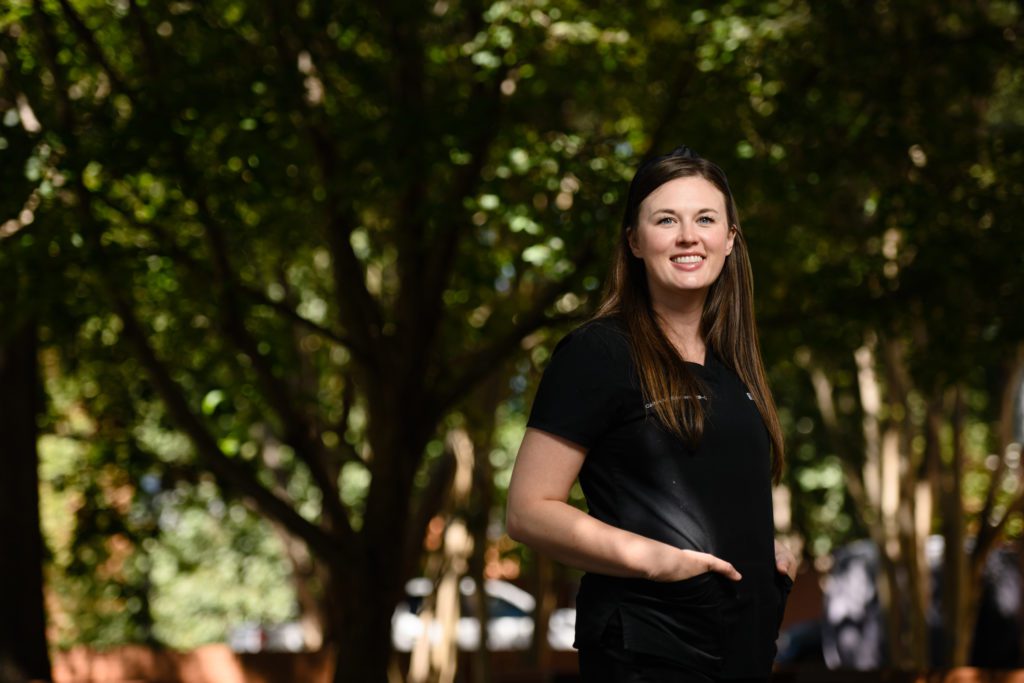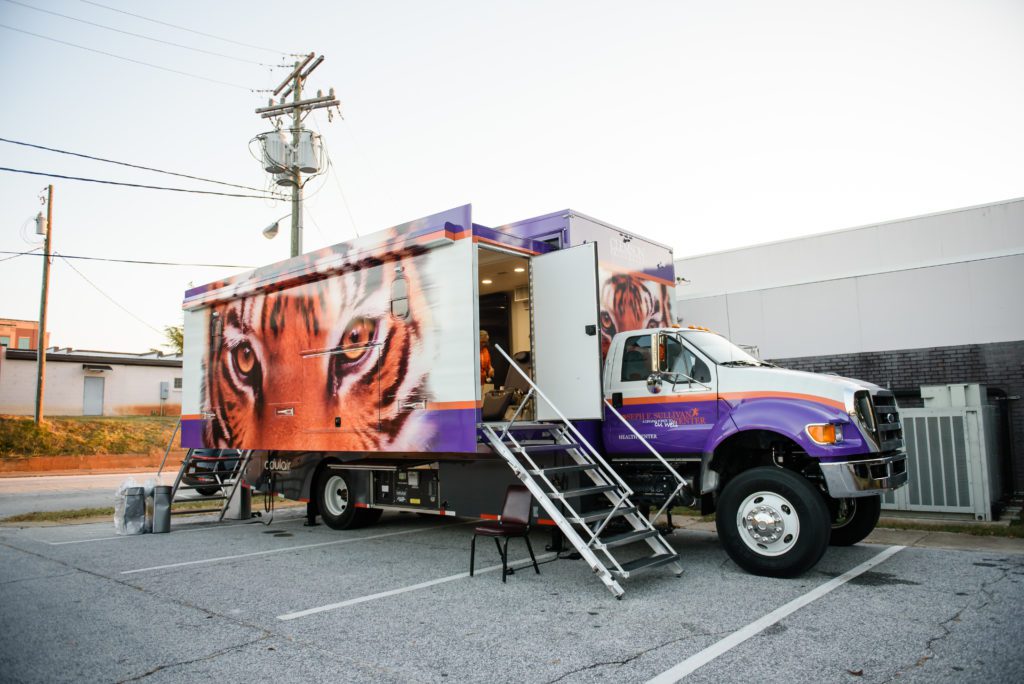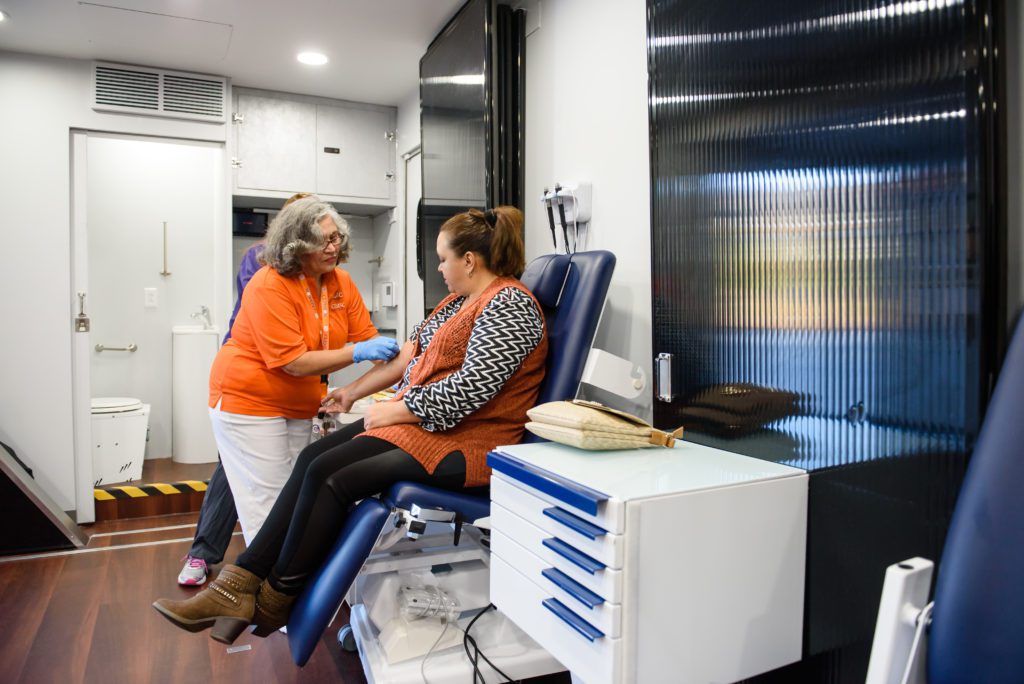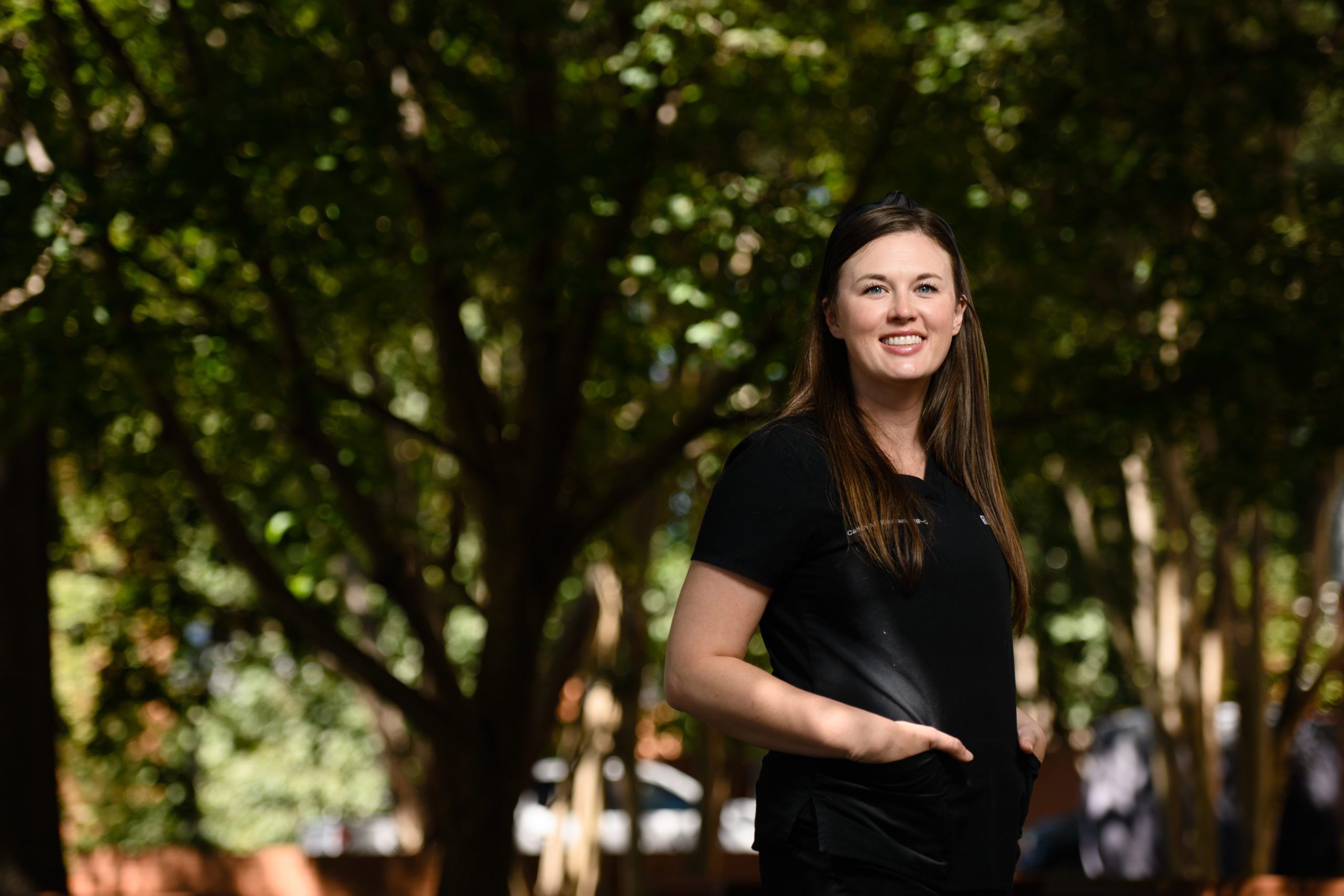Caitlin Kickham builds cross-cultural relationships to provide underserved populations with health care access
Caitlin Kickham ’11, ’13, M ’19 is the associate director of clinical operations for Clemson Rural Health. As a bilingual, board-certified family nurse practitioner, she personally cares for patients across the state while managing the University’s fixed health care facilities and mobile health units.
Currently, Clemson Rural Health has three brick-and-mortar hub clinics and seven mobile health units (five full-sized clinics and two vehicle units). Her role includes overseeing clinical processes and procedures, staffing the fixed and mobile clinics, developing and maintaining relationships with 190 collaborators across the state and overseeing students in these clinics.

Supporting the mission of rural health at Clemson
Clinical service delivery
Clemson Rural Health’s clinical service delivery includes three tenants:
1. Reduce preventable hospitalizations.
For individuals with chronic illnesses and no access to primary care, conditions that can typically be treated through outpatient care cause hospitalization.
Caitlin’s work with collaborators to deliver health care in rural communities provides routine touchpoints with health care providers that enable South Carolinians to manage their conditions without hospitalization.
2. Reduce premature death.
Any death before 75 is considered premature. Most frequently, early death is caused by drug overdoses, poorly managed chronic diseases and worksite accidents.
Caitlin works with the mobile clinics to educate South Carolina’s citizens about how to work more safely and to manage chronic conditions.
3. Improve healthy behavior.
With primary care, many citizens can reduce preventable hospitalizations and premature death. “We also want South Carolina’s citizens to have a quality of life,” says Caitlin.
What’s the point if we keep you out of the hospital and alive until you’re 75, but you still don’t feel good? So we also focus on the social determinants of health, like connecting patients with dietitians for healthier eating and produce prescriptions, and behavioral health clinicians for coaching and therapy.
Caitlin Kickham, associate director of clinical operations for Clemson Rural Health


Academic mission
Clemson Rural Health’s academic mission is to train future health care professionals with the belief that giving students early exposure to rural health care will inspire them to earn their degrees, then go back and serve their own rural communities.
Historically, this teaching mission has been focused on Clemson students, but as Clemson Rural Health expands its footprint across the state, the academic mission is being widened to include other university, college and high school students. Clemson Rural Health already works with medical students from Edward Via College of Osteopathic Medicine (VCOM) and Prisma Health medical students.
Rural Health research
Clemson Rural Health, and Caitlin specifically, aim to bring research into rural communities. Their goal is to bring cutting-edge research to the patients so they can actively participate.
“Most patients in rural areas don’t know that there are research trials that they can participate in,” Caitlin says. “They don’t know that they can access these medicines or be paid to be in them, so we want to bring research in. Those may be projects that our own team develops, but there also will be projects our collaborators develop and we support.”
In addition to clinical trials, Clemson Rural Health conducts research as a sponsored activity.
Connecting with 190 statewide collaborators
Clemson Rural Health’s 190 collaborators are distinct entities that work with the University across the state to provide health care in their local communities. Currently, this includes faith-based organizations, local hospital systems, free clinics, Federally Qualified Health Centers, food banks, Veggie RX, Foodshare, Foodhub, soup kitchens, homeless shelters and farms.
Giving patients their best chance
Through the Best Chance Network, Clemson Rural Health collaborates with mammography facilities to provide comprehensive cancer screening in one location. Mobile health clinics park outside of mammography facilities (or alongside mobile mammography units) to provide free breast and cervical cancer screenings for women without insurance coverage so that they can receive comprehensive services in one place. This provides life-saving screenings to women at no charge and reduces the burden on women, such as coordinating child care and travel time, required for yearly checkups.
Expanding the footprint of Clemson’s rural health care in South Carolina
In addition to increased student development through educational partnerships, Clemson Rural Health reaches underserved populations through three brick-and-mortar clinics at strategic locations in South Carolina.
The first location serves the Clemson community on campus at the Joseph F. Sullivan Center. Opened in 1978, the Joseph F. Sullivan Center offers employee health and primary care services to the Clemson community.
The second location provides primary health care in Walhalla, South Carolina. This clinic is the farthest-reaching primary care facility in Oconee County, and while Clemson Rural Health has served in this location with mobile clinics since 2010, they will have a permanent presence with a brick-and-mortar clinic with the grand opening of the Walhalla clinic on September 29, 2022.
The third brick-and-mortar clinic will be in Orangeburg, South Carolina. The University secured a lease in July and is on track to open the Orangeburg clinic in mid-October of this year.
Driven by a life-changing experience
As demonstrated by the significant impact and large scale of her professional efforts, Caitlin Kickham finds not just a career but a calling in rural health care. It’s a mission she began while pursuing her first undergraduate degree at Clemson, language and international health.
Traveling to care for rural populations in Costa Rica
“I studied Spanish, and I lived in Costa Rica,” Caitlin says. “Up until that point, I thought that I wanted to go to medical school and be a doctor so that I could make a bunch of money. While living in Costa Rica, a developing country, I worked with the equivalent of home health nurses, and each morning, we would ride a bus for an hour to then walk for an hour to get to a river where people lived in lean-to’s with dirt floors and were happy as clams! We provided simple screening and education to pregnant women and their families, and despite having no money, they were able to survive and they were happy. ‘Pura vida,’ or ‘pure/simple life,’ is their saying, and they loved their life.
“… When I came back, I had already decided that I no longer wanted to go down that path, but I wanted to figure out what I could do here in our own state. I got involved with the Walhalla clinic so I could practice my Spanish, and my eyes opened to realize, ‘There are developing areas right here in Oconee County and in South Carolina.’”
Returning home to reach rural patients in South Carolina
From that point on, Caitlin was fully committed to serving South Carolina’s rural populations. She went on to earn her nurse practitioner degree so that she could provide care to rural patients on the mobile clinics, stayed on at Clemson as a wellness coordinator, and became director of the Clemson Rural Health outreach programs to build relationships across the state. She currently serves as the associate director of clinical operations, conducting research, and is working toward her Doctor of Nursing Practice degree through Clemson.
I love my job. I’ve always loved my job, and I’ve never wanted to work anywhere else because I have the opportunities to write grants and do research or teach students. I get to do something different every day, and it spurs the passion I have because there’s lots of people that need taking care of, and we get to do it.
Caitlin Kickham, associate director of clinical operations for Clemson Rural Health







